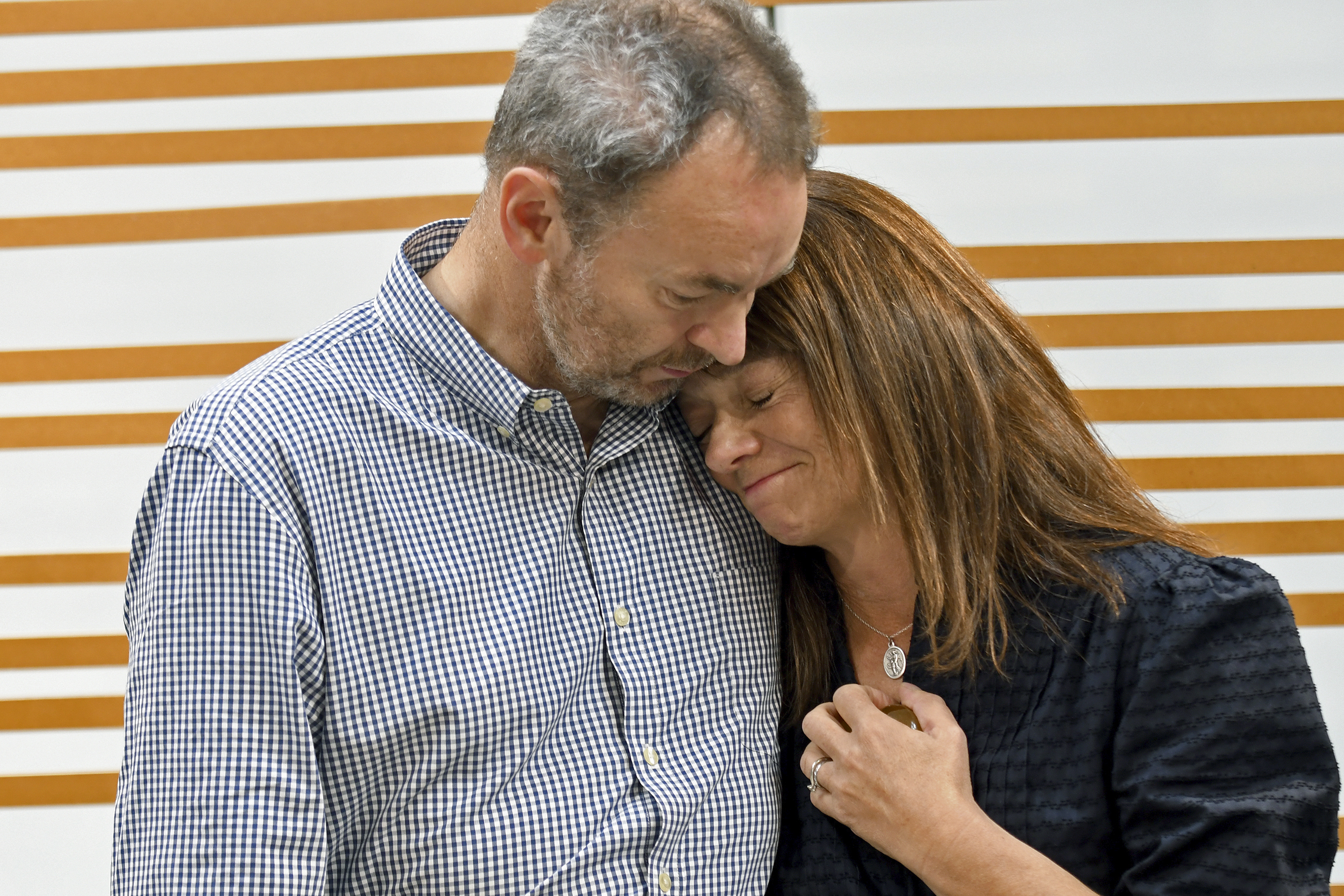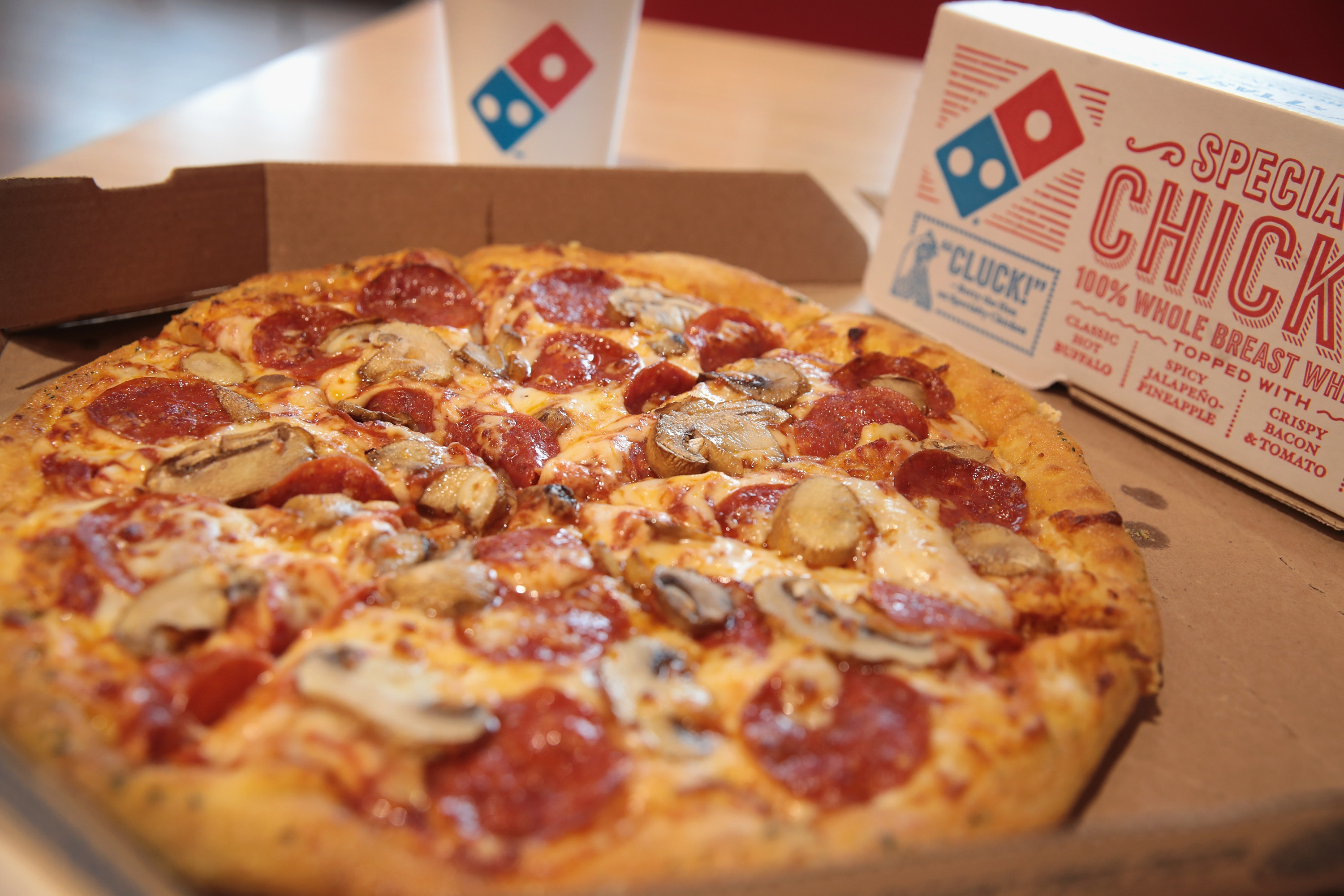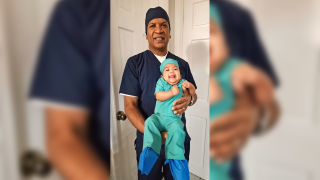
In early March 2023, Reish Baboolal felt short of breath. He thought he was exhausted and took time off work. When he tried returning to work as a patient care assistant, he was still struggling to breathe, and his supervisor recommended he seek medical care. Doctors in the emergency room soon knew what was wrong.
“I thought maybe I had a little respiratory problem, maybe I was coming down with a cold,” the 51-year-old from New York City tells TODAY.com. But doctors discovered he had three blockages in his heart, went into congestive heart failure, and then had a heart attack.
He felt stunned by the diagnosis and that he had to go through triple bypass surgery.
“I was healthy. I exercise. I eat properly,” he says. “I wasn’t expecting a condition like this.”
Get Boston local news, weather forecasts, lifestyle and entertainment stories to your inbox. Sign up for NBC Boston’s newsletters.
Struggling to breath
In the spring of 2023, three days before he ended up going to the hospital, Baboolal felt really tired, but he wasn’t surprised by it. His wife was 12 weeks pregnant with their first child, he had recently worked extra overtime shifts and he was preparing their taxes. When he first felt winded, he figured his body was telling him to slow down.
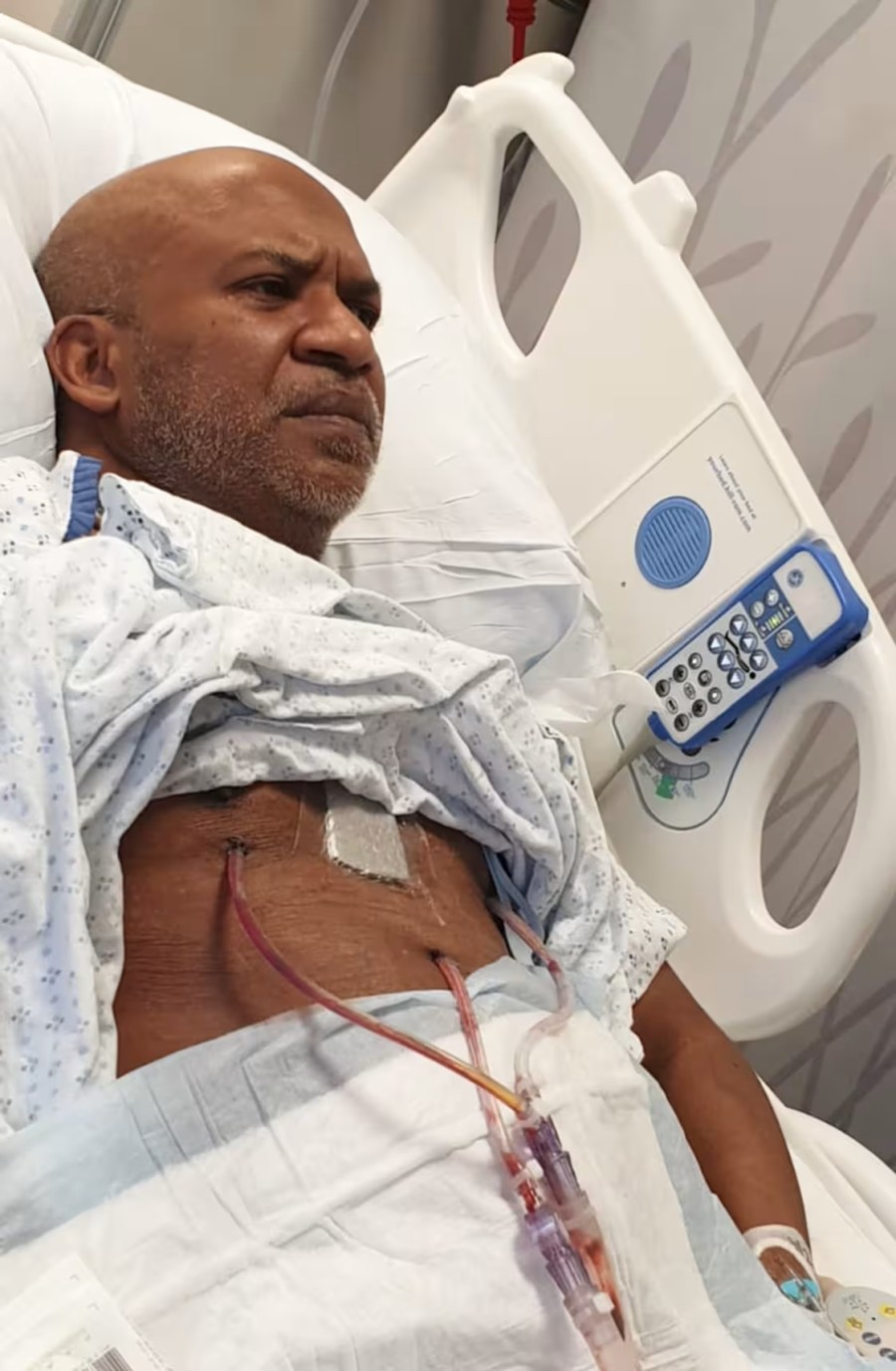
U.S. & World
“I called out (of work) just to get some rest,” he says. When he tried returning to work, though, his health had deteriorated. At first, he thought it was exhaustion, and he tried boosting his energy by doing some pushups. But it didn’t work.
“I started to feel winded again,” Baboolal says. “I was feeling worse. So, I texted my boss and said, ‘I’m experiencing shortness of breath. What should I do? Do you want me to come to work?’”
Baboolal works at Mount Sinai Health System, and his supervisor urged him to see a doctor. In addition to his shortness of breath, Baboolal’s blood pressure and pulse were elevated, and his primary care doctor told him to go to the emergency room at Mount Sinai Queens. Doctors ran tests and noticed a fluid buildup in his lungs, a sign of congestive heart failure due to a blockage in his heart.
The father-to-be was "very sick," Dr. Ahmed El-Eshmawi, a cardiovascular surgeon at Mount Sinai who treated Baboolal, tells TODAY.com. “We found out after he got to the hospital that he had a heart attack. He was in congestive heart failure.”
Doctors transferred him to Mount Sinai in Manhattan, where they ran more tests. Baboolal had three blocked arteries to his heart, and he needed to undergo triple bypass surgery. While he understood that urgency of the surgery, he felt worried about his pregnant wife and his future as a dad.
“I was really concerned about her and the baby more than myself,” he says. “I said, ‘Am I going to be alright to be able to take care of my wife and baby?’”
Baboolal had so many plans for his new family and now he had “all these thoughts running through (his) head,” he recalls. Doctors assured him that because of his age, he would do well in the surgery and fully recover.
“The surgery went OK,” he says. “I spent like five days in the ICU, which was a nightmare. I couldn’t sleep. I had to lay flat on my back.”
While being in the intensive care unit felt tough, Baboolal felt better when he returned to a regular room. Soon after, he was able to return home but had to wear an external defibrillator vest.
“If I had any irregular heartbeat, this would trigger (a shock),” he says.
Luckily, he didn’t need it during his recovery.
Heart attack symptoms require medical care
Too often Dr. George Syros, a cardiologist at Mount Sinai Queens, hears about patients who wait too long to seek help for a heart attack. If you have any symptoms such as shortness of breath or chest pain, you should consider it an emergency and seek medical care immediately, he says.
“I’ve seen particularly male patients ignoring their symptoms. (They say), ‘Oh it’s nothing. Don’t worry about it,’” Syros tells TODAY.com. “When they come in, they’re coming in late. … This is really important: If you have severe symptoms, please seek help.”
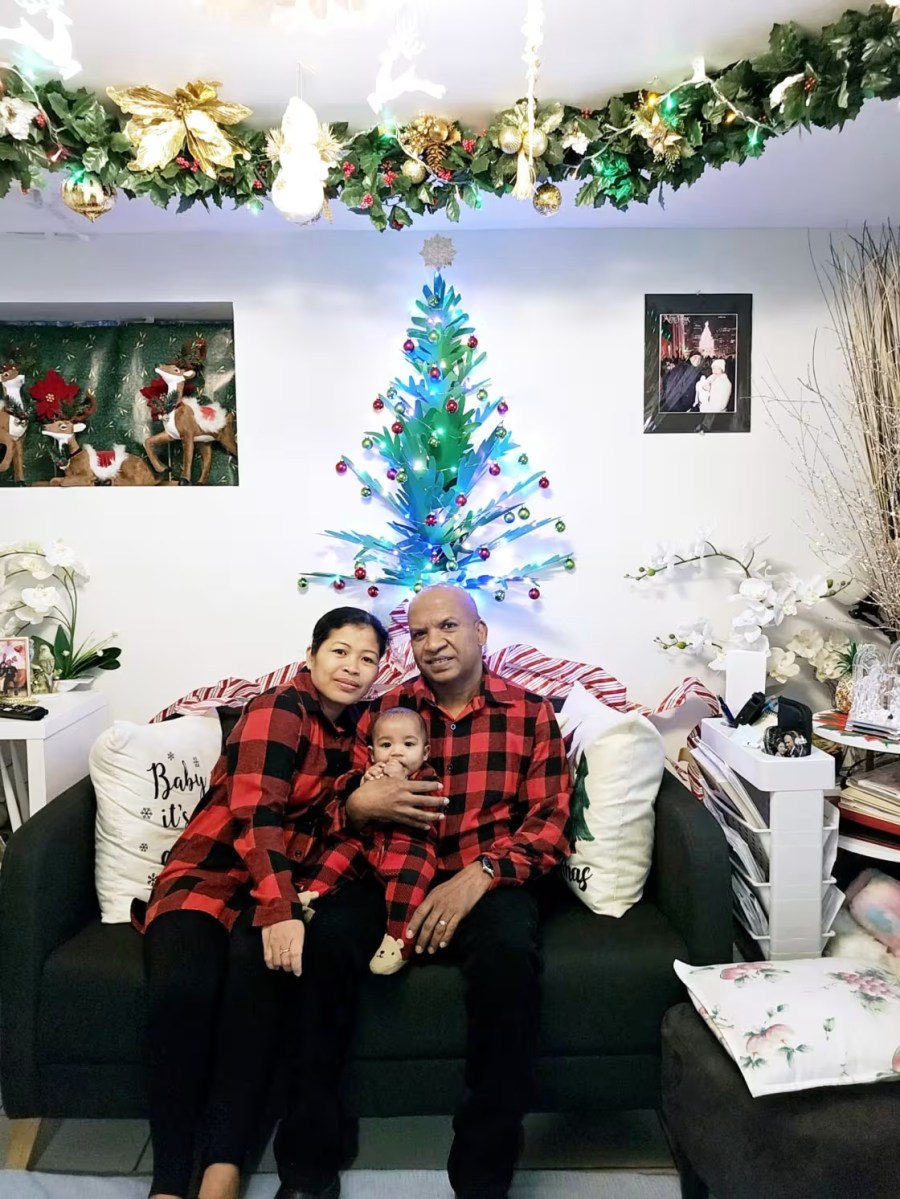
According to the American Heart Association, symptoms of heart attack can include:
- Chest pain or discomfort
- Pain in arms, back, neck, jaw or stomach
- Shortness of breath
- Feeling faint
- Having cold sweats
Syros, Baboolal’s current cardiologist, notes “he was very sick when he came to us.”
When Baboolal transferred to Mount Sinai in Manhattan, El-Eshmawi performed his bypass surgery. He agrees people shouldn’t ignore symptoms. “As young people, you shouldn’t have shortness of breath when you walk or exercise,” he says.
When El-Eshmawi met Baboolal, “his heart function was only in the 20s,” according to an ejection fraction test, which measures how much blood your heart can pump out. A normal reading is 50-70%, the American Heart Association says.
“We did the triple bypass, and I felt confident he would respond well,” El-Eshmawi says. “He did really well given how sick he was.”
Baboolal's heart function is now “almost close to normal,” the surgeon adds. Both doctors encourage people to see a primary care physician annually so they can understand their risks for heart disease, such as elevated blood pressure or high cholesterol.
“Modifying every single risk factor that can be responsible for heart disease, it can make you live longer and happier,” Syros says.
He encourages people to get 150 minutes of exercise a week, eat a healthy diet, avoid smoking and maintain their weight to help reduce their risk of heart disease.
A new addition to the family
By July, Baboolal was able to return his regular work duty. In the middle of the month, though, his wife thought something was wrong with the baby, so they rushed to the hospital, where she received an emergency cesarean section.
After a short hospital stay, his wife returned home, but their baby needed to say in the neonatal intensive care unit. While stressful, the experience actually helped Baboolal in an unexpected way.
“I had to take (breast milk) to the hospital, so I’d take a 10-minute walk (there), 10-minute walk back and come home and go to work,” he explains. “It helped me with my rehab.”
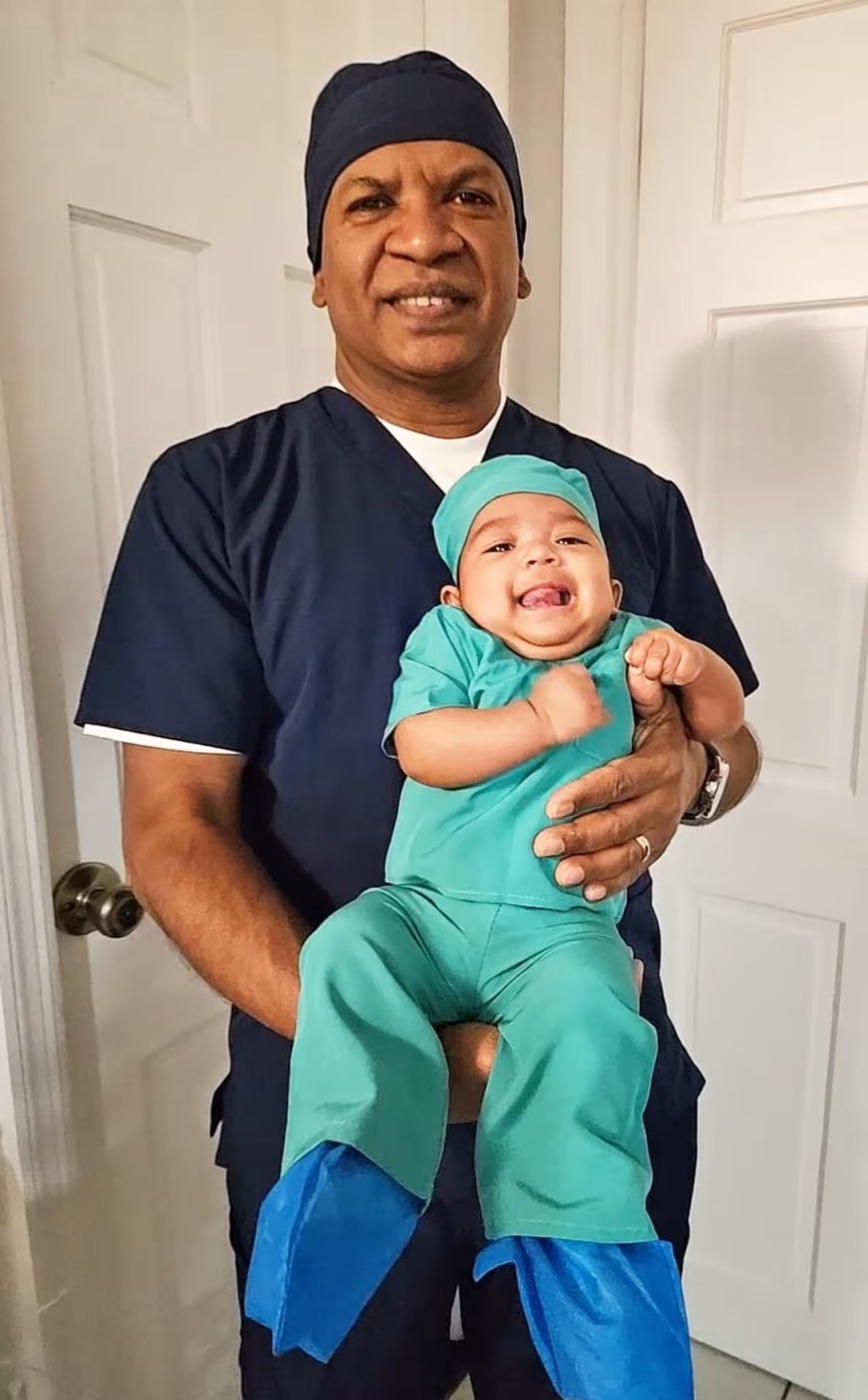
His newborn daughter also inspired him to take his medications as recommended and keep active.
“I had the will to really get better,” he says. “I was so happy and relieved (that) I’ll be able to pick my baby up.”
Baboolal says he wanted to share his story to encourage others to be mindful of their health.
“Don’t take your life for granted. Don’t take your health for granted,” he says. “I thought I was healthy. … I did everything right and yet something happened.”
This story first appeared on TODAY.com. More from TODAY:

